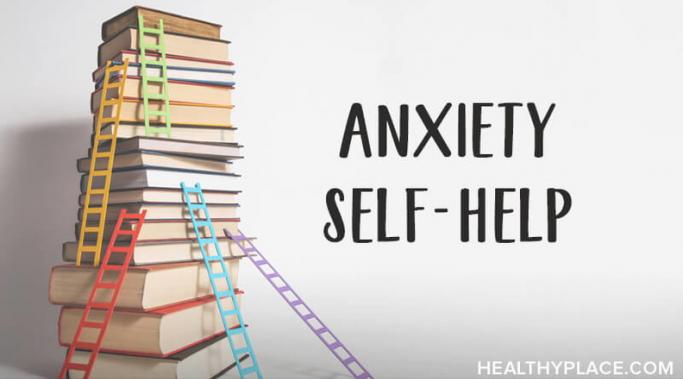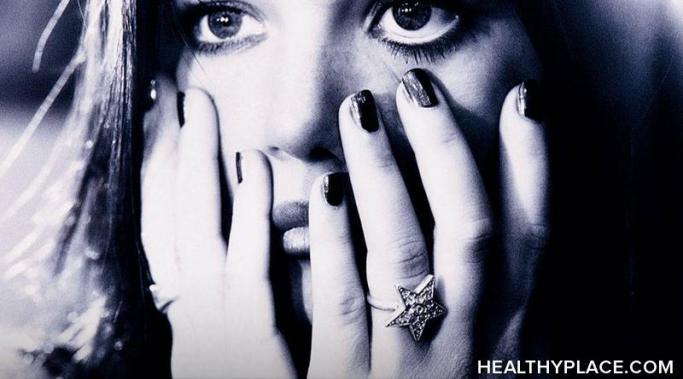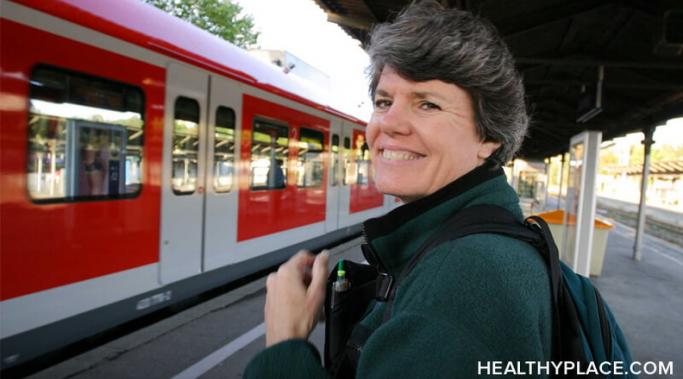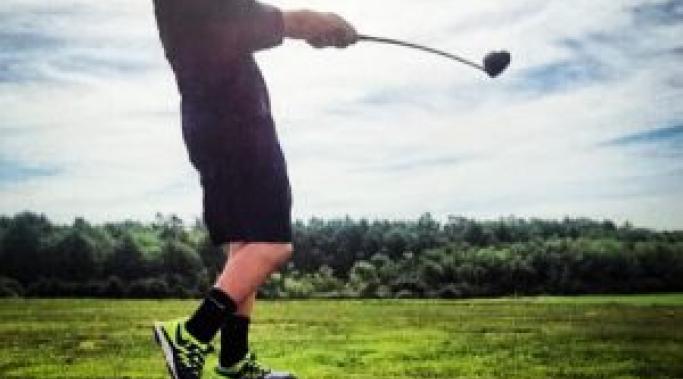Posttraumatic stress disorder's panic attacks are scary--literally. Characterized by feelings of extreme fear and anxiety, many people with posttraumatic stress disorder (PTSD) experience the sweaty palms, racing heartbeat, and rapid breathing that comes with panic attacks.
Anxiety – Trauma PTSD Blog
Black-and-white thinking is common to posttraumatic stress disorder (PTSD). When you are traumatized, especially repeatedly, you begin to believe that life is all good or all bad. Unfortunately, it’s more common to lean towards all bad, because that is what the traumatic experiences you lived through taught you.
Thanksgiving is here, which means the holiday season is upon us; for me, the holidays come with complex posttraumatic stress disorder (complex PTSD, sometimes shortened to C-PTSD). Many people find this time of year joyful and triumphant, loving the hustle and bustle. When you live with complex PTSD, however, this can be an overwhelming season filled with many emotions.
The effects of posttraumatic stress disorder (PTSD) on relationships when both partners have PTSD create both problems and benefits. Living in the aftermath of trauma is difficult enough on its own, but navigating a relationship in which both partners have PTSD can be an emotional minefield. Fortunately, learning how to be in a relationship with someone who has PTSD is easier to understand when you live with PTSD too.
I have a bad habit and it's about posttraumatic stress disorder (PTSD)-related avoidance. I make plans with the best of intentions, only to cancel them at the last minute. Does this sound familiar to you? As many times as this has happened, I continue to experience a disconnect between the willingness to participate in an event when I make plans, and the utter desire to avoid leaving my room when it is time to go. However, I have found that breaking outings into steps reduces PTSD-related avoidance.
Travel anxiety and posttraumatic stress disorder (PTSD) magnify the tension of planning and leaving on a vacation. The traveling, the unknown venues, crowds, open spaces and other unpredictable scenarios can make many PTSD symptoms such as anxiety, depression, dissociation and fatigue more prominent. Of course, having PTSD doesn’t mean you should stay close to home. By taking some extra time to detail your travel plans, you can handle travel anxiety and PTSD.
Knowing when you'll need to cope with posttraumatic stress disorder (PTSD) triggers in social settings is an unpredictable aspect of posttraumatic stress disorder. Despite knowing many of the situations where encountering a PTSD trigger is likely, there is no way to anticipate or to avoid every trigger (PTSD Recovery: How to Cope With Triggers). PTSD triggers that occur in social situations call for a toolkit of coping strategies that you can use even when it isn't practical to leave the group setting.
Three years ago this month I joined the HealthyPlace blogging team by creating this blog. I did so because I wanted to write about symptoms of posttraumatic stress disorder (PTSD) and what it takes to heal. This was a personal mission: I am a PTSD survivor who struggled for almost 30 years before launching a healing rampage that led me to freedom. And now, while I'm sad to do it, I must say goodbye to Trauma! A PTSD Blog.
Follow-through and healing after posttraumatic stress disorder (PTSD) symptoms arrive is tough as illustrated by a client who recently told me about his plans to begin learning transcendental meditation to reduce his anxiety and he blurted in exasperation, "I know what I have to do to heal! The problem is that even though I know what to do I can't seem to get myself to do it."
This is a common refrain in recovery (and one I often said myself). Knowing what to do but not following through on doing it is one of the biggest problems in how to heal after PTSD symptoms settle in.
Within five years of the start of my posttraumatic stress disorder (PTSD) symptoms I was deep into self-destructive food restrictions that caused me to drop an enormous amount of weight. My parents had tried to get me into therapy after my trauma but I flat out refused to discuss it. With the weight loss, they forced me to see eating disordered specialists, none of whom knew what to do with me. I wouldn't eat and I wouldn't talk. Back in the early 80s the clear connection between PTSD and eating disorders wasn't well documented or understood. Now it is and the data is clear: the link between PTSD and eating disorders is real and very common.








